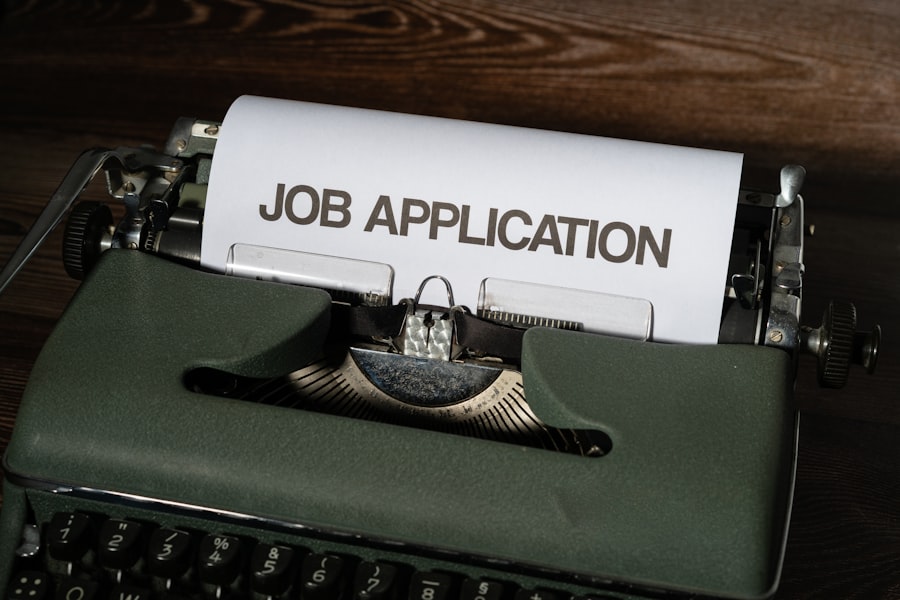In recent years, artificial intelligence (AI) has made significant inroads into various sectors, and the hiring process is no exception. As you navigate the complexities of job interviews, you may find that AI is increasingly becoming a pivotal player in how candidates are evaluated and selected. The integration of AI technologies into recruitment processes is not merely a trend; it represents a fundamental shift in how organizations approach talent acquisition.
By leveraging algorithms and machine learning, companies can streamline their hiring processes, making them more efficient and data-driven. As you consider the implications of AI in job interviews, it’s essential to recognize both the potential benefits and the challenges that come with this technological advancement. While AI can enhance the efficiency of recruitment, it also raises questions about fairness, bias, and the human touch that is often crucial in hiring decisions.
Understanding these dynamics will help you appreciate the evolving landscape of job interviews and the role that AI plays in shaping it.
Key Takeaways
- AI in job interviews is becoming increasingly common, with many companies using it to streamline the hiring process and improve candidate assessment.
- The benefits of using AI in hiring include increased efficiency, reduced bias, and improved candidate experience.
- However, there are concerns about the potential for AI to perpetuate bias, invade privacy, and replace human judgment in the hiring process.
- AI is changing the recruitment process by automating repetitive tasks, analyzing large volumes of data, and identifying top candidates more effectively.
- AI plays a crucial role in screening candidates by analyzing resumes, assessing skills, and predicting job performance based on data-driven algorithms.
The Benefits of Using AI in Hiring
One of the most significant advantages of incorporating AI into the hiring process is its ability to process vast amounts of data quickly and accurately. As you sift through countless resumes and applications, AI can help you identify the most qualified candidates based on specific criteria. This not only saves time but also allows you to focus on candidates who are more likely to fit the role and the company culture.
By automating repetitive tasks, such as resume screening, you can allocate your resources more effectively and enhance your overall recruitment strategy. Moreover, AI can help eliminate unconscious bias in hiring decisions. Traditional recruitment methods often rely on subjective judgments that can inadvertently favor certain demographics over others.
With AI-driven tools, you can implement standardized evaluation criteria that focus solely on candidates’ skills and experiences. This shift towards a more objective assessment can lead to a more diverse pool of applicants and ultimately contribute to a more inclusive workplace.
The Challenges and Concerns of AI in Job Interviews

Despite its many benefits, the use of AI in job interviews is not without its challenges. One major concern is the potential for algorithmic bias. If the data used to train AI systems contains biases—whether intentional or unintentional—these biases can be perpetuated in hiring decisions.
As you engage with AI technologies, it’s crucial to ensure that the algorithms are designed to promote fairness and equity rather than reinforce existing disparities. Another challenge lies in the lack of transparency associated with many AI systems. As you rely on algorithms to make hiring decisions, you may find it difficult to understand how these systems arrive at their conclusions.
This opacity can lead to mistrust among candidates who may feel that they are being evaluated by a “black box” rather than by human judgment. Addressing these concerns requires a commitment to transparency and accountability in how AI tools are developed and implemented.
How AI is Changing the Recruitment Process
| Impact of AI on Recruitment Process | Statistics |
|---|---|
| Reduction in Time-to-Hire | 43% decrease in time-to-hire with AI |
| Improved Candidate Quality | 38% increase in candidate quality with AI |
| Cost Savings | 30% reduction in cost per hire with AI |
| Enhanced Candidate Experience | 56% improvement in candidate experience with AI |
AI is fundamentally transforming the recruitment process by introducing new methodologies for candidate evaluation and selection. As you adapt to these changes, you may notice that traditional practices are being replaced by more innovative approaches. For instance, AI-driven platforms can analyze candidate interactions on social media or professional networks, providing insights into their skills, interests, and cultural fit.
This holistic view allows you to make more informed decisions about which candidates to pursue further. Additionally, AI is facilitating a shift towards remote interviewing and virtual assessments. As remote work becomes increasingly common, AI tools enable you to conduct interviews and evaluations without geographical constraints.
This flexibility not only broadens your talent pool but also allows for a more diverse range of candidates to participate in the hiring process. Embracing these changes can enhance your organization’s ability to attract top talent from various backgrounds.
The Role of AI in Screening Candidates
When it comes to screening candidates, AI plays a crucial role in enhancing efficiency and accuracy. As you review applications, AI algorithms can quickly analyze resumes for relevant keywords, qualifications, and experiences that align with the job description.
Moreover, AI can assist in assessing soft skills through advanced analytics. By analyzing language patterns in written applications or responses during video interviews, AI can provide insights into a candidate’s communication style, emotional intelligence, and problem-solving abilities. This multifaceted approach to screening enables you to gain a deeper understanding of each candidate’s potential fit within your organization.
The Use of AI in Conducting Interviews

AI is also revolutionizing how interviews are conducted. With advancements in natural language processing and machine learning, AI-powered interview platforms can simulate real-life interview scenarios. As you engage with these systems, you may find that they offer structured interview formats that guide both candidates and interviewers through a series of questions designed to elicit meaningful responses.
Furthermore, AI can provide real-time feedback during interviews, helping you assess candidates’ performance on various metrics such as confidence level, clarity of communication, and engagement. This immediate analysis allows for a more dynamic interview experience and enables you to make quicker decisions based on objective data rather than solely relying on subjective impressions.
Ethical Considerations in AI-Driven Hiring
As you explore the integration of AI into hiring practices, ethical considerations must remain at the forefront of your decision-making process. One critical aspect is ensuring that your AI systems are designed with fairness in mind. This involves actively working to eliminate biases from training data and continuously monitoring algorithms for any unintended consequences that may arise during their use.
Additionally, transparency is vital when implementing AI-driven hiring practices. Candidates should be informed about how their data will be used and how decisions will be made based on AI assessments. By fostering an environment of openness and accountability, you can build trust with candidates while also ensuring compliance with legal and ethical standards.
The Impact of AI on Diversity and Inclusion in Hiring
AI has the potential to significantly impact diversity and inclusion within organizations. By utilizing data-driven approaches to candidate evaluation, you can create a more equitable hiring process that prioritizes skills and qualifications over demographic factors. This shift can lead to a more diverse workforce that reflects a variety of perspectives and experiences.
While AI can help mitigate bias, it can also inadvertently reinforce existing disparities if not carefully monitored. As you implement AI tools in your hiring processes, consider establishing diversity metrics and regularly assessing the outcomes of your recruitment efforts to ensure that they align with your organization’s commitment to inclusivity.
Training and Development for AI Interviewing Systems
To maximize the effectiveness of AI interviewing systems, ongoing training and development are crucial. As technology evolves, so too must your understanding of how to leverage these tools effectively. Investing in training programs for your HR team will empower them to utilize AI systems confidently while also ensuring they remain aware of best practices for ethical implementation.
Moreover, continuous development of AI algorithms is essential for maintaining accuracy and relevance in candidate assessments. Regularly updating training data and refining algorithms based on feedback will help ensure that your AI systems remain effective in identifying top talent while minimizing biases.
The Future of AI in Job Interviews
Looking ahead, the future of AI in job interviews appears promising yet complex. As technology continues to advance, we can expect even more sophisticated tools that enhance candidate evaluation processes while addressing ethical concerns. Innovations such as virtual reality assessments or advanced predictive analytics may become commonplace, further transforming how organizations approach recruitment.
However, as you embrace these advancements, it’s essential to remain vigilant about the implications they carry. Balancing efficiency with ethical considerations will be key as you navigate this evolving landscape. By prioritizing transparency, fairness, and inclusivity in your hiring practices, you can harness the power of AI while fostering a positive candidate experience.
Best Practices for Employers Using AI in Hiring
To effectively integrate AI into your hiring processes, consider adopting best practices that prioritize both efficiency and ethical considerations. First and foremost, ensure that your algorithms are regularly audited for bias and accuracy. This proactive approach will help mitigate potential issues before they impact your recruitment efforts.
Additionally, maintain open lines of communication with candidates regarding how their data will be used throughout the hiring process. Transparency fosters trust and encourages candidates to engage positively with your organization. Finally, invest in ongoing training for your HR team to ensure they are equipped with the knowledge necessary to navigate the complexities of AI-driven hiring effectively.
By following these best practices, you can create a recruitment process that not only leverages the benefits of AI but also upholds ethical standards and promotes diversity within your organization. Embracing this balance will position your company as a leader in innovative hiring practices while fostering an inclusive workplace culture.
In recent years, the integration of artificial intelligence in job interviews has become a topic of significant interest and debate. AI technologies are being utilized to streamline the recruitment process, offering tools for resume screening, candidate assessment, and even conducting initial interviews. These advancements promise increased efficiency and objectivity, but they also raise concerns about privacy and bias. For a deeper understanding of how AI is transforming the job market and its implications for both employers and job seekers, you can explore a related article on this topic by visiting How Wealth Grows. This resource provides insights into the evolving landscape of AI in recruitment and its potential impact on the future of work.
FAQs
What is AI for job interviews?
AI for job interviews refers to the use of artificial intelligence technology to conduct and analyze job interviews. This can include automated interview scheduling, virtual interviews, and AI-powered assessment of candidate responses.
How does AI for job interviews work?
AI for job interviews works by using natural language processing and machine learning algorithms to analyze candidate responses, facial expressions, and other non-verbal cues during virtual interviews. It can also automate the scheduling of interviews and provide real-time feedback to candidates.
What are the benefits of using AI for job interviews?
Some benefits of using AI for job interviews include increased efficiency in the hiring process, reduced bias in candidate evaluation, standardized interview questions and scoring, and the ability to assess a larger pool of candidates in a shorter amount of time.
What are the potential drawbacks of using AI for job interviews?
Potential drawbacks of using AI for job interviews include concerns about privacy and data security, the risk of algorithmic bias in candidate evaluation, and the potential for candidates to feel uncomfortable or disadvantaged by virtual interviews.
Are there any legal or ethical considerations when using AI for job interviews?
Yes, there are legal and ethical considerations when using AI for job interviews, including compliance with data privacy regulations, ensuring fairness and transparency in the use of AI algorithms, and providing accommodations for candidates with disabilities or other accessibility needs.
How widely is AI for job interviews being used?
AI for job interviews is becoming increasingly popular among employers, particularly in industries with high-volume hiring needs. Many companies are adopting AI-powered interview platforms to streamline their recruitment processes and improve the candidate experience.
